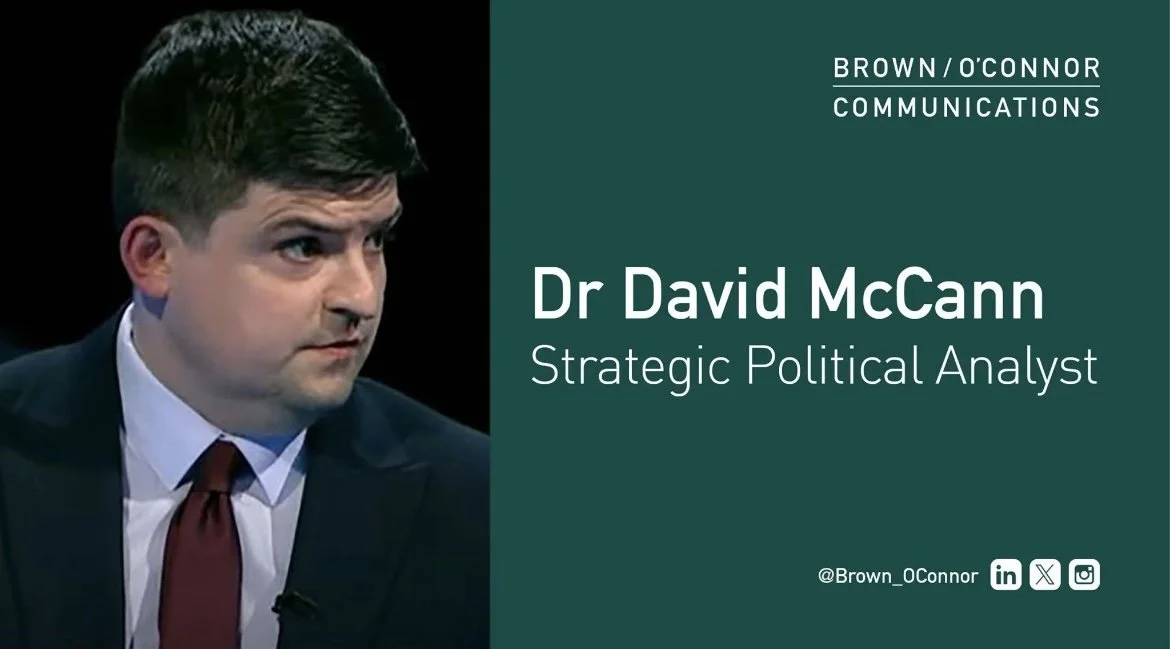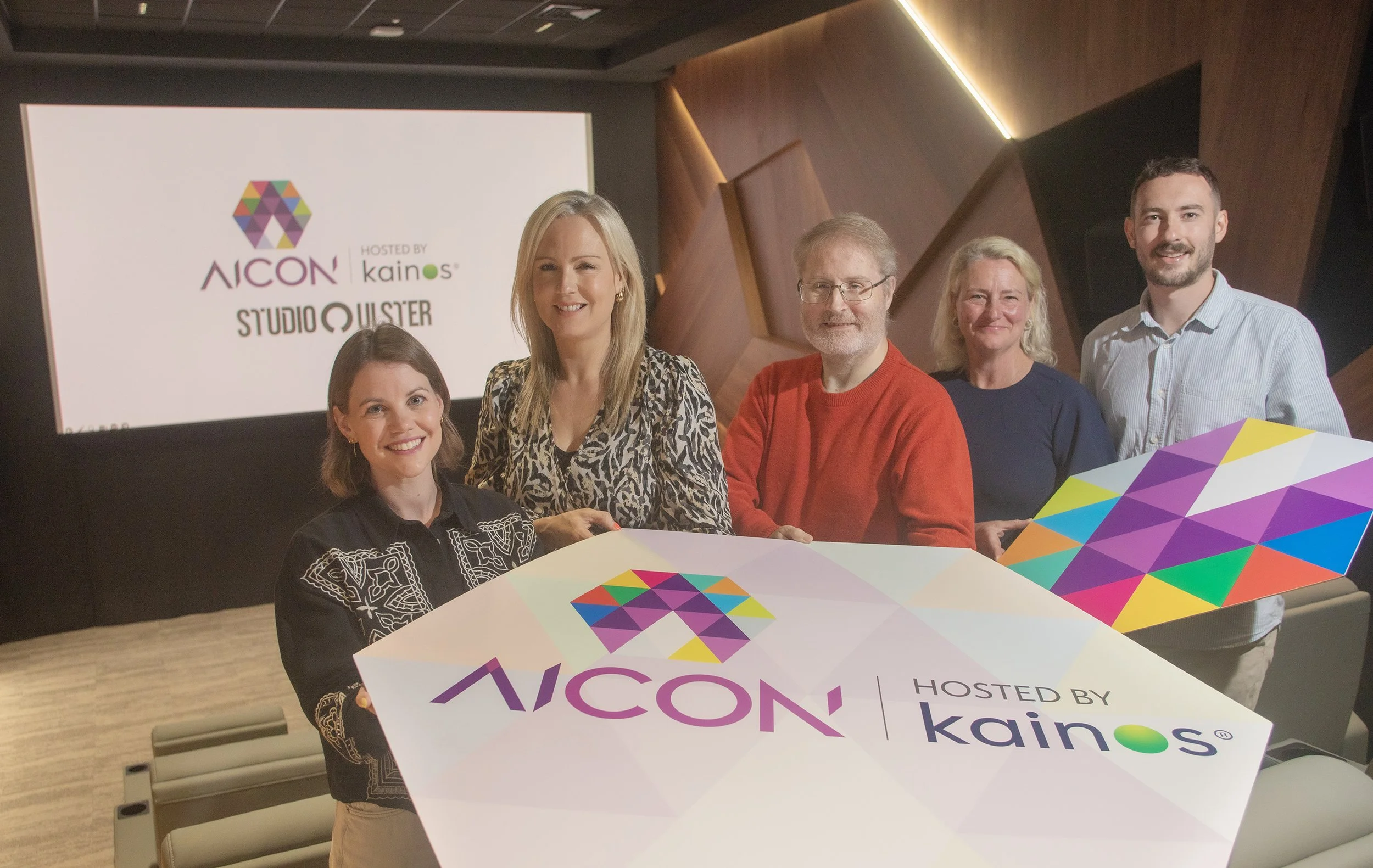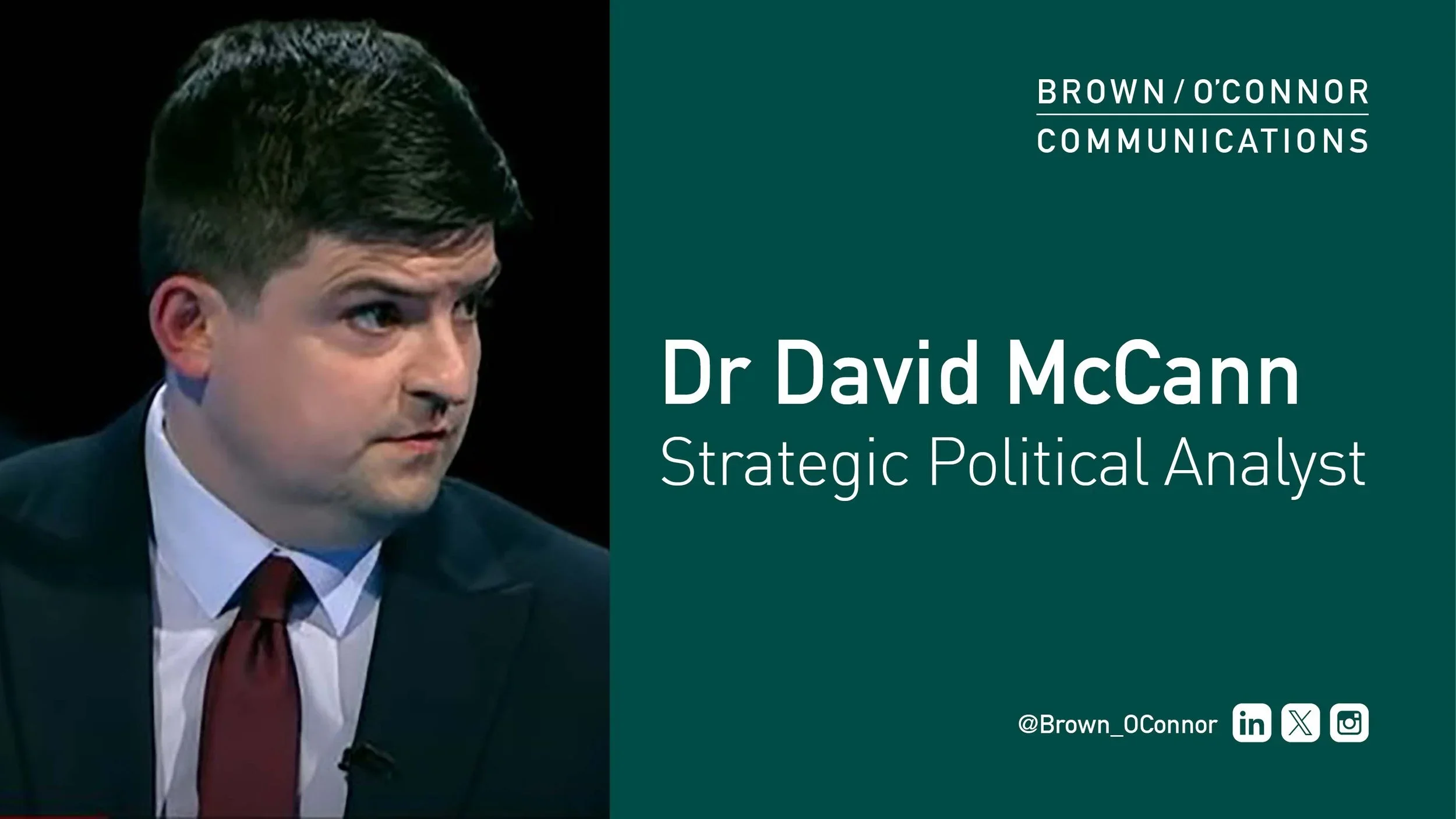ICC Belfast lays out economic prize from doubling international convention business
National and International conferences and conventions in Belfast are set to unlock over £90million in economic impact over the next five years.
Today (15 September 2025) the Belfast City Council-owned company behind ICC Belfast, Waterfront Hall and Ulster Hall, unveiled a new Five-Year Business Plan for the organisation. It aims to double the number of large-scale business events hosted in Belfast by 2030, and grow the venues’ live entertainment offering.
Launching the plan, CEO Rob McConnell, who has been in post since February 2025, told civic, business and tourism leaders that Northern Ireland’s only purpose-built International Convention Centre is a vital economic asset with potential to benefit the city and the region.
“There is a world of incredible business, industry and scientific events going on at ICC Belfast that many people in Northern Ireland will never be aware of, from sectors as diverse as pioneering cancer pharmacy to space exploration and cyber security, to scaffolding, eco-construction and Irish dancing. These events bring hundreds and thousands of people to the city at a time, making them a vital source of income for our local economy.”
Mr McConnell highlighted that the revenue from each event reaches far beyond the direct value of a venue booking, saying:
“The direct revenue from booking our venue is just the tip of the iceberg. For example, a 1000 person conference at ICC Belfast brings over £1-£1.25million into the city, supporting hotels, restaurants and bars, taxis, airports and tourist attractions in Belfast and further afield. This venue has the capability and capacity to host events for up to 5000 delegates.”
Economy Minister Dr Caoimhe Archibald, said:
“In the past year, conferences and conventions delivered an estimated £37 million for our economy. The ICC Belfast, Waterfront Hall, and Ulster Hall have made a significant contribution to this. These venues are uniquely positioned to attract international visitors. They make a huge contribution to our tourism sector, especially business tourism, which in turn supports our local businesses; our bars and restaurants, our shops and services.
“Earlier this year we published a new 10-Year Tourism Vision & Action Plan for the North. It sets an ambitious goal, to exceed £2 billion in expenditure from overnight visitors by 2035. I’m confident that today’s plan will help move this dial.”
Since becoming CEO at ICC Belfast Waterfront Hall and Ulster Hall, Rob McConnell, who has three decades of commercial experience in the cyber and tech sector, has focused on driving innovation in performance sales, marketing and business development.
Presenting the Five Year Business Plan, which was developed in partnership with Belfast City Council and the Board, Mr McConnell outlined a detailed go-to-market strategy aimed at delivering a 5-year economic impact of £90.5million by 2030 from conference and convention business. He stated that it’s a highly competitive marketplace but one in which ICC Belfast is set to excel. He said,
“ICC Belfast competes for business against venues in Glasgow, Liverpool, Birmingham, Paris, Vienna and Amsterdam and many more. We’re landing some really impressive big events, we are delivering world-class events, but I see opportunities for us to do a lot more.
“ICC Belfast is consistently winning national and International industry awards as the best convention centre, the best venue and the most innovative and high-tech venue. Belfast’s convention centre is punching above its weight in a sector that’s bursting with potential. Our new five year business plan is about taking a more strategic and commercial approach in order to fully unlock this economic potential for this city.
“We’re working very closely with Visit Belfast, Tourism NI and the Department for the Economy because selling the venue is tightly interwoven with selling the destination. There’s an opportunity for everyone in “Northern Ireland plc” to speak positively about our exhibition and convention centre, whatever sector they work in. People can be confident that ICC Belfast can deliver: we have the feedback and the awards to prove it.”
Mr McConnell said that the effects of the pandemic are still impacting the business events sector globally and he explained that he’s focused on building back the pipeline of new business.
“In the last couple of years, we saw a bounce-back when cancelled events were rebooked, however, industry-wide, the number of events is still not back to pre-pandemic levels. Our major focus now is to get our bookings in shape for the years ahead. In this sector, the lead-times are long: we’re talking to conference planners about events in 2028 and as far away as 2032, so it will take patience to bear fruit. I’m pleased to say that our new sales and marketing approach is already showing green shoots.”
Speaking at the launch of the five year plan, Ellvena Graham OBE, Chair of Tourism Northern Ireland, said:
“The ICC Belfast provides us with world-class facilities, which gives Northern Ireland the platform it needs to attract major significant economic benefit.
“I welcome its new five-year business plan - it is ambitious, rooted in partnership, and vital to positioning Northern Ireland as a competitive and attractive destination on the global stage.
“The aims and clear vision it has put forward will undoubtedly bring huge economic benefits to Northern Ireland over the next five years and will continue to showcase the region as a must-see and competitive destination for attracting visitors.”
Turning to the live entertainment side of the business, the Five Year Business Plan is focused on developing new initiatives and deepening the social value from the iconic Waterfront Hall and the historic Ulster Hall.
Rob McConnell continued, “Our goal is to grow the economic impact of our entertainment events to approximately £90m in the next five years.
“We’re starting to create and curate our own home-grown events, supporting local businesses and event suppliers and we’ve recently introduced VIP pre-sale and concert experiences.
“More importantly, we want everyone in every part of the community here to see their place in our venues – we can and we should make them available for the whole community and for much more than just a rare special occasion.
“We’re using our impact to support mental health, dementia and food poverty, and we put on community family pantomime performances. We’ve opened up the venues for use by upcoming grassroots musicians and community organisations, with plans for accessible gigs already in the pipeline, and we’re making dedicated efforts to welcome and support neurodiverse audiences, ensuring our spaces are as inclusive as possible. We’re also deeply committed to driving event sustainability and local sourcing through our hospitality partners.
“These iconic venues have played host to big events, cultural highlights and historic moments that have shaped people’s lives. Looking to the next five years, there is so much more we can do with all of our venues and, with the support of our board and Belfast City Council, I’m excited to drive this business forward.”
Welcoming the five-year business plan, Deputy Lord Mayor of Belfast, Councillor Paul Doherty, said:
“Belfast City Council is proud to have invested into ICC Belfast, developing it into a world-class conference centre which now ranks among the top 1% venues of its kind in the world.
“Together with our city partners, the ICC Belfast team have worked hard to secure major events which, in turn, support jobs and innovation in our retail, hospitality and tourism sectors, as well as promoting Belfast internationally as a great place to come and do business.
“This is a really exciting plan for the next five years, reflecting our own ambitions to grow our city further and attract more major events and conferences here.
“I’m also pleased to hear about initiatives underway to increase sustainability, support our arts sector and boost engagement with diverse audiences, all of which will further cement the value of both the Waterfront Hall and Ulster Hall venues to our city.”
















